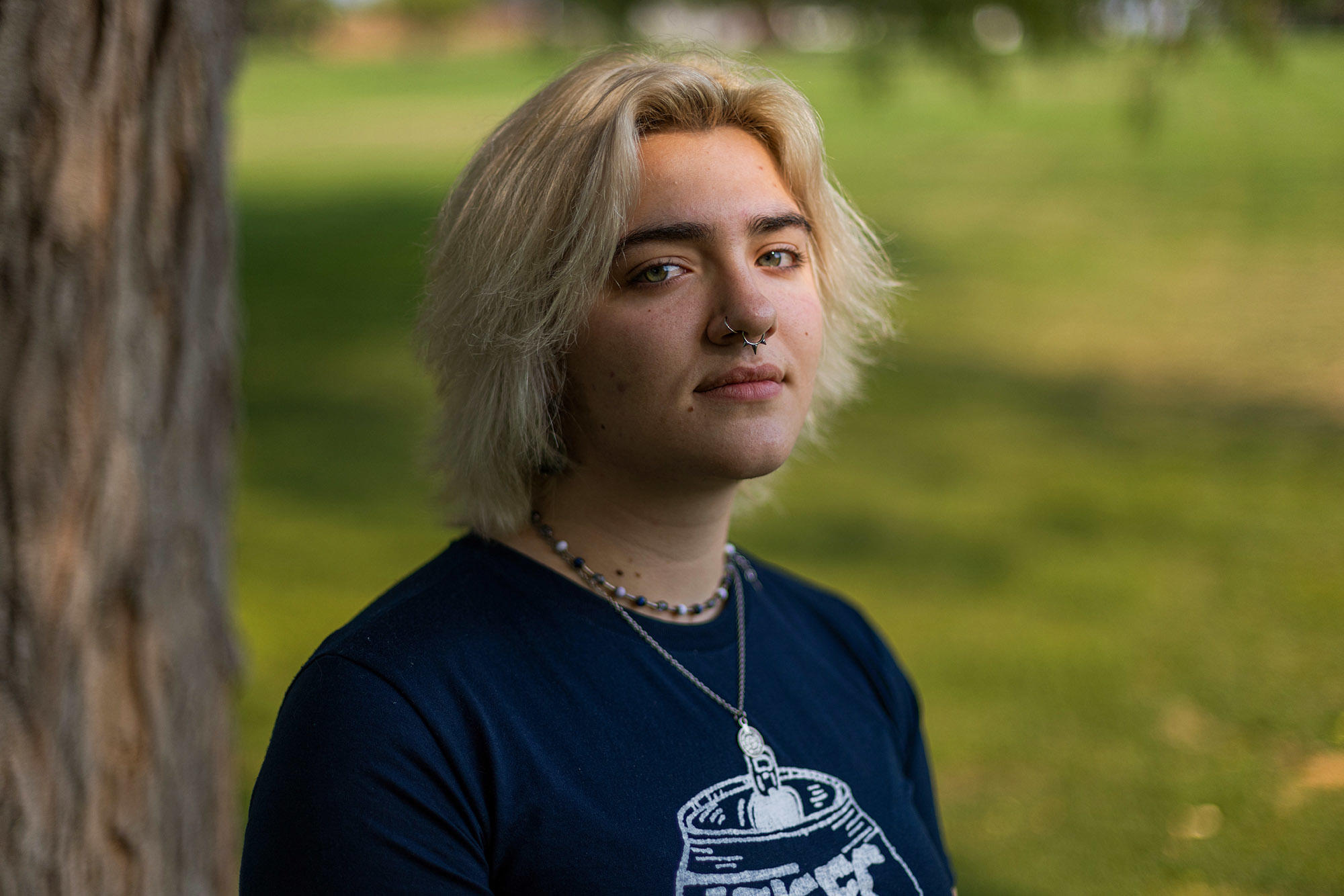[ad_1]
“He just didn’t come to school one day. [He] was like, ‘I can’t handle it… And I had to tell my mom that I’m throwing up and I can’t go, but I just cannot stomach it today,’” said See, a senior at West Valley High School in Yakima and a member of the statewide group Justice for Girls Coalition for Washington State who testified for the change before the state Legislature. “And it was heartbreaking.”
No one says that mental health days are a new thing for students. But this will be the first school year in Washington that it’s an official thing.
“I would argue that those kinds of absences have been going on forever, it’s just now that we’re coding it differently in our system,” said Enumclaw High School Principal Rodrick Merrell. “Now parents can be honest and say, ‘My student is struggling today.’”
He says the change means that each school can make an official count of its mental health-related absences. Washington is one of 12 states that specifically allows students to take excused mental health days off, according to the website Very Well Mind. The first was Virginia, which implemented its law in 2019. At least four other states are considering it.
Schools can now accept mental health symptoms in the definition of an excused absence, just as they do physical health symptoms. It formalizes allowing students to take days off to care for their mental health, including for counseling and behavioral health appointments.
The law does not allow students to excuse themselves, and each district will come up with its own requirements — for example, if a parent or doctor note will be needed to determine whether an absence is excused.
Merrell said that it’s a change that’s been needed. “If a kid breaks their leg, we wouldn’t expect them to take part in PE,” Merrell said. “But I don’t think there’s an equivalent for a student with debilitating depression.”
The new rule also enables a school to collect information on its overall mental health, which can inform how it might respond in other ways. “If I had a lot of kids taking mental health days, and we had that data, we can ask, ‘Are there other things we can do to help students?’” Merrell said.
Offering mental health days can also serve another purpose: to normalize issues of mental health. “We’re trying to destigmatize mental health challenges. It’s not a thing that we are talking about,” Merrell said.
The change comes as Washington grapples with a mental health crisis among youth. The Healthy Youth Survey, a statewide questionnaire of students across grade levels, showed that in 2021, 45% of Washington 12th graders reported feeling depressed (sad and hopeless), an increase of four percentage points since 2018. A decade ago, in 2012, 30% of 12th graders reported feeling depressed.
Washington children also have been reporting higher rates of anxiety or depression than their peers nationwide, according to reporting in Axios. The Annie E. Casey Foundation found that about 15% of children in Washington were diagnosed with anxiety or depression in 2020. Nationally, that number was 11.8%.
Last year, Gov. Jay Inslee declared declining youth mental health as a statewide emergency — about 12 months after stopping in-person classes as a way to slow the spread of COVID-19. His emergency declaration cited increasing mental health crisis calls, hospitalizations and suspected suicide attempts.
The governor’s declaration called for the end of all-remote learning as part of the state’s response to the mental health crisis, and authorized the Health Care Authority and the Department of Health to work on recommendations to support youth mental health.
[ad_2]
Source link

